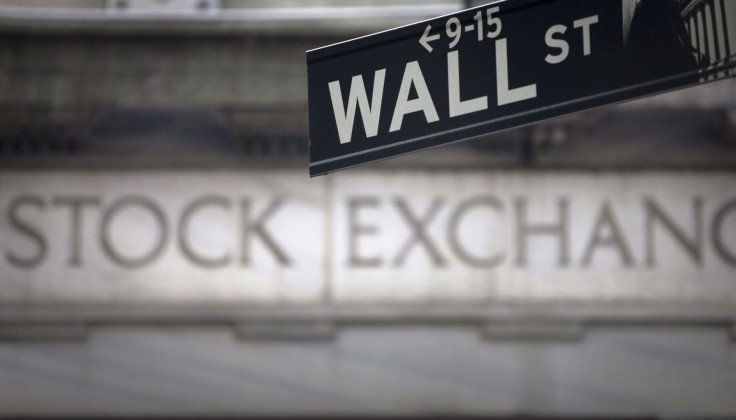Dow Jones Industrial Average Down On Disappointing Earnings News From UPS, Kimberly-Clark; European Bonds Rally

The Dow Jones Industrial Average declined Friday on some disappointing U.S. earnings news and despite rallies in Europe after the European Central Bank’s announcement of a massive shift in policy aimed at stoking inflation and economic growth in the eurozone. U.S. equities were down after United Parcel Service Inc. (NYSE:UPS) announced a disappointing fourth-quarter forecast.
“The UPS news took the wind out of the market at the start,” Peter Cardillo, chief market economist at Rockwell Global Capital, said. “But the leading economic indicators showed a gain in December, so I think that will help.”
The Dow, which measures the share prices of 30 large industrial companies, was trading down early Friday, by 57.13 points, or 0.32 percent, at 17,756.85. The S&P 500 stock index lost 5 points, or 0.24 percent, at 2,058.19. The Nasdaq Composite climbed 11.10 points, or 0.23 percent, to 4,761.50, lifted by positive news from Starbucks Corporation (NASDAQ:SBUX), whose stock price gained over 5 percent, to $86.98, after the opening bell. After markets closed Thursday, the company reported a 13 percent year-over-year rise in fourth-quarter 2014 revenue, to $3.78 billion.
Meanwhile, UPS shares were getting pummeled early Friday, down over 9 percent, to $103.58, after the company said before markets opened its preliminary fourth-quarter earnings were lower than it had previously forecast. Kimberly-Clark Corporation (NYSE:KMB) dropped nearly 5 percent, to $113.49, after forecasting 2015 earnings that missed estimates. With earnings season well underway, profits at S&P 500 companies are up a slight 0.8 percent for the last quarter of 2014, much lower than a forecast of 8.1 percent issued in October, according to Bloomberg.
On the upside, a report of U.S. leading economic indicators released by The Conference Board research group Friday morning showed a 0.5 percent increase in December. The index measures a mix of data, including American manufacturing, unemployment claims, new factory orders and housing data. "The short-term outlook is getting brighter and the economy continues to build momentum," Ataman Ozyildirim, economist at The Conference Board, said in a prepared statement. "Still, a lack of growth in residential construction and average weekly hours in manufacturing remains a concern."
European Bonds Rally
Demand for eurozone government bonds climbed Friday, pulling down yields to record lows after the central bank said it would buy debt from member countries for the first time.
"The program the ECB announced yesterday is relatively large in terms of types of assets and also the maturities to be purchased," Patrick Jacq, a senior fixed-income strategist at BNP Paribas SA in Paris, told Bloomberg. "This is clearly supportive for all euro-area government bonds." The main European markets continued to cheer the ECB announcement. France’s benchmark CAC 40 and the German DAX blue-chip stock index were both up over 2 percent in afternoon trading within the eurozone. And London’s FTSE was up a slight 0.21 percent.
The euro was trading around $1.12, falling from $1.16 on Wednesday, a welcome move since a lower euro is a key component to the new policy aimed at combating deflation and spurring exports.
The U.S. 10-year bond yield followed European notes down by a slight 1.4 basis points, to 1.839 percent. Meanwhile, the Italian 10-year yield touched its lowest level on record, to 1.413 percent, while Spain’s 10-year debt note plunged 16 basis points, to 1.249 percent. Bond yields -- namely, how much profit you make when the notes mature -- fall when demand for them increases, and the ECB move stoked demand because it was perceived to lower the risk in two of the eurozone’s hardest-hit economies.
Oil Rises Slightly; Gold Falls
Oil prices jumped slightly Thursday afternoon on news of Saudi King Abdullah’s death, but both benchmarks remain below $50 a barrel. Brent crude, a global benchmark, gained 1.32 percent, to $49.16, on Friday, while U.S. West Texas Intermediate lost 0.28 percent, to $46.18. The king’s death isn’t likely to alter Saudi Arabia’s current policy of keeping oil flowing to the markets despite a glut that has driven prices down 60 percent since last summer. The country has 16 percent of the world’s proven oil reserves and has the largest crude oil production capacity.
After gaining $7, to $1,300 an ounce, on Thursday, gold prices were retreating Friday, losing $4, to $1,296 an ounce. Gold is considered a safe-harbor investment, and prices can rise when investors are skittish about global financial conditions.
© Copyright IBTimes 2024. All rights reserved.





















